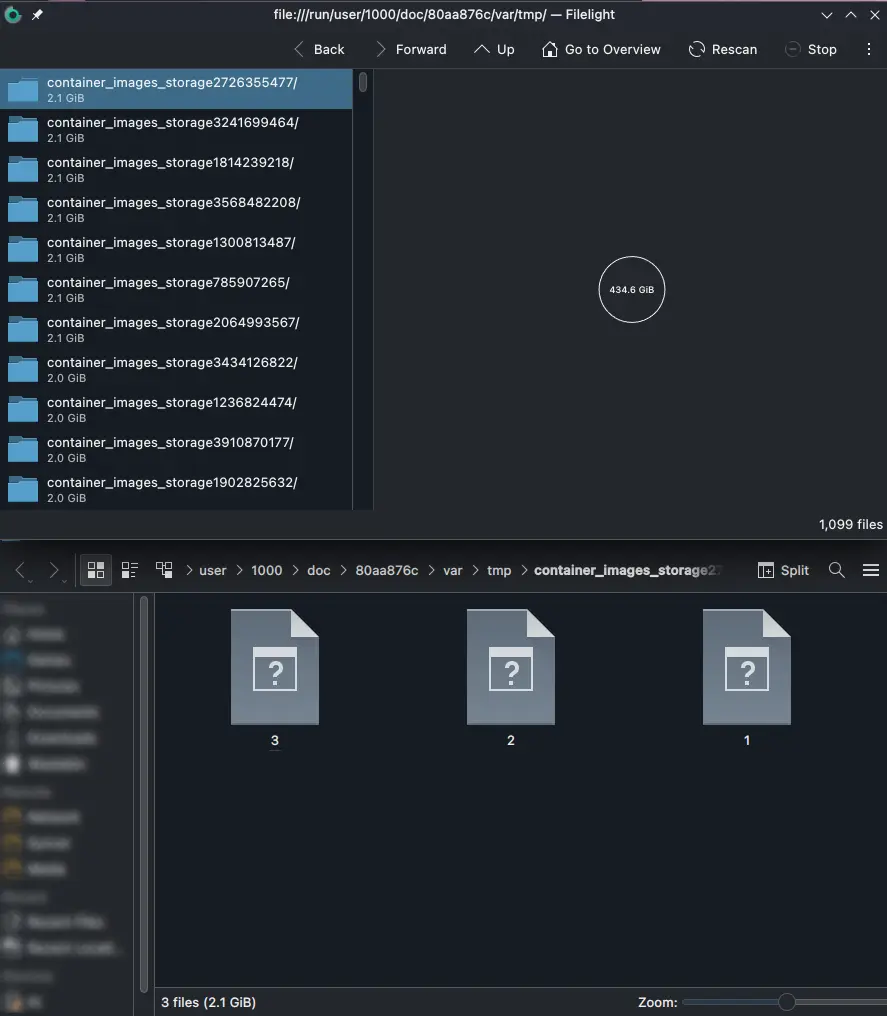72
you are viewing a single comment's thread
view the rest of the comments
view the rest of the comments
this post was submitted on 06 May 2024
72 points (97.4% liked)
Linux
46620 readers
1026 users here now
From Wikipedia, the free encyclopedia
Linux is a family of open source Unix-like operating systems based on the Linux kernel, an operating system kernel first released on September 17, 1991 by Linus Torvalds. Linux is typically packaged in a Linux distribution (or distro for short).
Distributions include the Linux kernel and supporting system software and libraries, many of which are provided by the GNU Project. Many Linux distributions use the word "Linux" in their name, but the Free Software Foundation uses the name GNU/Linux to emphasize the importance of GNU software, causing some controversy.
Rules
- Posts must be relevant to operating systems running the Linux kernel. GNU/Linux or otherwise.
- No misinformation
- No NSFW content
- No hate speech, bigotry, etc
Related Communities
Community icon by Alpár-Etele Méder, licensed under CC BY 3.0
founded 5 years ago
MODERATORS

No idea but I found this: https://github.com/containers/podman/issues/20839
ouh, nice find! when I do
podman infoi do fine one line that saysso this must be it? I have had one distrobox set up using boxbuddy, could that be it?
Give this a go:
See if it frees up any space. But it does seem like you're running containers (which makes sense given you're on an immutable distro) so I would expect to be using lots of temporary space for container images.
right so
podman system prunedoes save some space, but not much. I still see the folders popping in right after having used the command. Alsopodman ps --alldoesnt list a single container :<My guess is that you're using some other form of containers then, there are several. It's a common practice with immutable distros though I don't know much about bazzite itself.
Are these files large? Are they causing a problem? Growing without end? Or just "sitting there" and you're wondering why?
Growing without and end, each file varies in size, one being bigger than the other, as I wrote in the description of the post. They will continue to stack up until it fills my entire 1TB SSD, then KDE will complain i have no storage left.
I dont have docker installed and Podman ps --all says I have no containers... So im kind of lost at sea with this one.
Those aren't the only containers. It could be containrd, lxc, etc.
One thing that might help track it down could be running
sudo lsof | grep '/var/tmp'. If any of those files are currently opened it should list the process that hold the file handle."lsof" is "list open files". Run without parameters it just lists everything.
Thanks for helping out! the command u gave me, plus opening one of the files gives the following output, I dont really know what to make of it;
Aha! Looks like it is podman then.
So - there are a few different types of resources podman manages.
podman container lspodman image lspodman volume lsWhen you do a "prune" it only removes resources that aren't in use. It could be that you have some container that references a volume that keeps it around. Maybe there's a process that spins up and runs the container on a schedule, dunno. The above podman commands might help find a name of something that can be helpful.
aha! Found three volumes! had not checked volumes uptil now, frankly never used podman so this is all new to me... Using
podman inspect volumegives me this on the first volume;Navigating the various things podman/docker allocate can be a bit annoying. The cli tools don't make it terribly obvious either.
You can try using
docker volume rm nameto remove them. It may tell you they're in use and then you'll need to find the container using them.Does all this also apply to distrobox? I don't use podman, but I do use distrobox, which I think is a front-end for it, but I don't know if the commands listed here would be the same.
I'm not terribly familiar with distrobox unfortunately. If it's a front end for podman then you can probably use the podman commands to clean up after it? Not sure if that's the "correct" way to do it though.